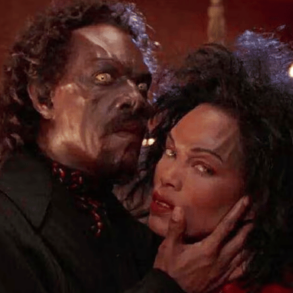I still remember the internet-fear-mongering library visits of sixth, seventh, and eighth grade. On a fall day near the start of the year, our English or history or math teacher would whisk me and my 30-some classmates to the library, where a tattooed and bearded librarian made sure that by the time his 40 minutes were up, every 11-year-old in sight knew that the Internet was synonymous with danger. In the documentaries he’d show us, a young, usually white adolescent girl would begin a virtual correspondence with an Internet friend she imagined to be her age. Then, predictably, they’d meet in person after months of talking, and he would kidnap her. And she would never be seen again.
The lesson was clear: don’t talk to strangers online. As a nerdy tween, I heeded this carefully. When I made my Tumblr account in seventh grade, I did not engage in private messages. On playdates, I avoided Omegle—a randomized online video chat website that the slightly cooler middle schoolers enjoyed. When I opened an Instagram account, I made it private.
A few years later, adults began warning us of new Internet dangers. Middle school fears of kidnapping morphed into high school mortification, the fear that an imprudent post might lead to reputational ruin, or another fate that would later be called “getting cancelled.” Everything you post is permanent. Don’t sext, post photos smoking weed, or use racial slurs. In the middle of high school, a video of kids at a neighboring private school singing the n-word on a boat began circulating. Then Instagram posts in which a white member of the student council and her white boyfriend affectionately called each other racial slurs also started circulating. It was unclear whether their unofficial censure by the Los Angeles private school community was because of the racist things they said or because they were they were careless enough to post those things online, but the implication was clear: limit your digital footprint and leave no trace of troublemaking. As a square and a person of color, I didn’t have much troublemaking to conceal, but to ensure my safety, I was mindful of what I posted and kept my accounts private.
I never considered that the articles I wrote for my school newspaper would become a permanent part of my digital footprint. Dozens of these stories—campus news pieces, but also opinions and quasi-personal essays—populate the Internet. In many ways, these articles are the antithesis of Internet troublemaking. They won’t threaten my future job prospects and they probably helped me during the college admissions process, but I’m still uncomfortable with the fact that they’re out there. One part of me appreciates them as a time capsule of my adolescence, but another part of me resents that no one ever warned me of their permanence.
Juvenilia often plays a role in how we interpret the lives of public figures. Listening to the early work of a famous musician or reading the college thesis of a politician often confirms, contradicts, or complicates a narrative about their later persona. Supreme Court Justice Clarence Thomas embraced the Black Power movement as a college student, while Republican senator Tom Cotton ’98 decried feminism and diversity in his biweekly Crimson column. In retrospect, juvenilia can raise questions of authenticity, consistency, and ideological evolution, but now everyone is basically part of the public sphere, whether they choose to be or not. The permanence and amplified public-ness of the Internet has trained young people to understand everything we write or post as already part of an archive—something that immediately exists for the future.
As a young writer, I have conflicting feelings about the practice of writing and digital privacy. On a material level, my work now requires that I betray the wishes of my middle school librarian and talk to strangers on the Internet. I’ve used Facebook, Twitter, and Reddit to contact and meet with sources for stories. And growing my digital footprint helps me reach as wide an audience as possible. While my concerns are less relevant when it comes to less personal pieces, the knowledge that everything I might write—about myself, about my beliefs—can be fit into a timeline, backed up with evidence from the Internet, makes me reluctant to entertain new ideas or work through tangled thoughts in writing I intend to publish.
Last fall, I Googled myself after answering questions for a Q-and-A with a member of the Harvard Club of SoCal, to see if the interview appeared. I scrolled through the results I expected to see—namely, high school and college newspaper articles—until I found a strange website that had keywords including my name, Harvard, and references to a Crimson article from two years prior. A long-form piece I wrote about the creation of the Generational African American Students Association on campus had traveled into the spooky corners of far-right online media. When I clicked on the link, I found a long-winded critique about the article, followed by a couple hundred anonymous comments. The criticisms ranged from predictable racism about Black people existing at Harvard to a thread debating my genetic makeup, based on a headshot someone found and posted in the comments. Ironically, between outbursts of racism, sexism, and antisemitism, these commenters had convinced themselves that I, a 20-something black and Jewish woman, occupied the pinnacle of societal power.
I’m not the only subject of far-right trolls’ mean-spirited interest in Harvard students in general, or Harvard student journalists in particular. When I reported all this to my editors and other leaders at The Crimson, everyone knew exactly how to support me because quasi-doxings like these had happened before. Many of the other reporters were news writers, whose stories never used the first-person voice, as mine occasionally had. Many of these other reporters were also women of color. Underlying all the personal attacks is a resentful assumption about the writers’ power. Never mind that, when I wrote this story at 19, the audience I had in mind was my classmates. It did not occur to me that I might be signing on to the same risks and threats as professional journalists at national publications (who themselves should not have to endure such things).
Reading—and obsessing over—these bigoted comments did not deter me from writing or pursuing journalism, but it did make me scared to write anything that had anything to do with me (like, for instance, this very column). I didn’t want my digital footprint wiped from the Internet, but I did want to keep first-person accounts for my own private use and to be able to choose what stays in the ether.
There are good arguments in favor of some wariness. Columnists and essayists with a national or global readership carry a different responsibility than 19-year-olds writing op-eds for their classmates. Established writers know that the boundary between public and private ideas, or the point at which private ruminations might enter the public sphere, is something they should consider with care. I’m learning this lesson through practice.
A friend of mine likes to say, “practice private thoughts.” Usually, she says this in the context of social or romantic relationships—as in, you don’t necessarily need to tell the person you just started seeing how much, precisely, you’re into them. In some cases, when it comes to writing or journalism, practicing private thoughts—or private conversations, or private journal entries—might be the responsible choice, and it is always the risk-averse choice. Indeed, Internet trolls will not tear down your articles if you have no articles on the Internet to tear down.
But there’s a difference between practicing private thoughts because of journalistic responsibility and practicing private thoughts out of legitimate fear that people on the Internet will attack you. And this is sad, because the most interesting questions about writing what’s personal or uncertain have nothing to do with doxing. For many young writers today, timeless questions about impact and service and legacy are muddled by the specific risks of writing online, for an Internet audience.
Even though it’s not always cowardly to sacrifice boldness for safety, I won’t let trolls stomp on my sparkle. Anyway, there are plenty of good arguments against practicing private thoughts that have nothing to do with safety (in the strictest sense). There’s wisdom in the clichés about taking risks and putting yourself out there! And there’s freedom in abandoning the idea that you, in your entirety, are the ideas or words you produce at a discrete moment in your life.
Just as I didn’t benefit from entertaining the critiques of alt-right trolls, I won’t benefit from imagining a potential readership that bristles at nuance, inconsistency, or experimentation. Holding back opinions, especially when I am unsure or self-doubting, can give silly readers more power than they deserve. Saturating the archive with thoughts-in-progress could be the best antidote to fears of an uncontrollable digital record. So, maybe I’ll scandalize my middle school librarian and let my thoughts run public.
This post was originally published on this site be sure to check out more of their content.





